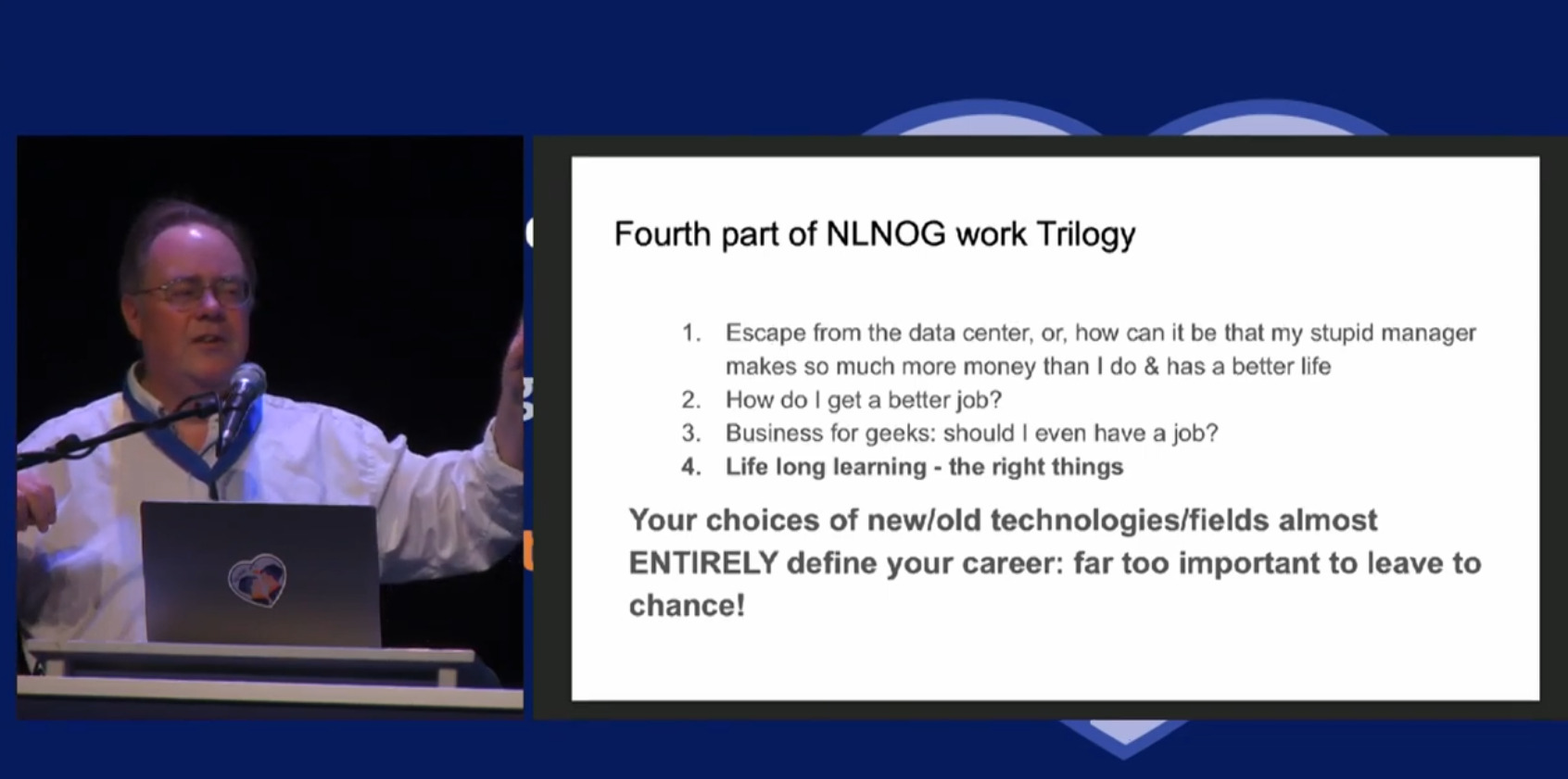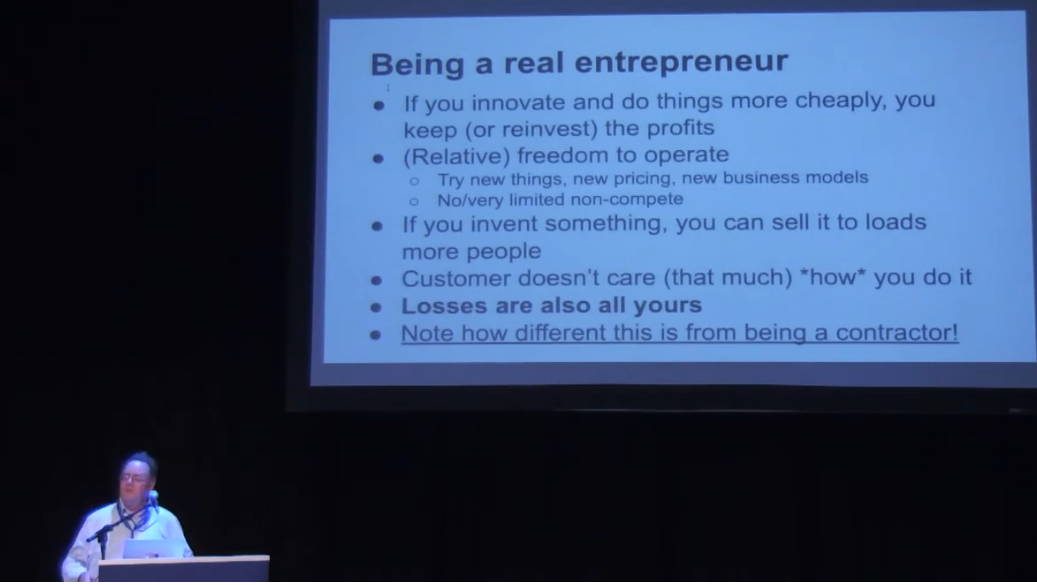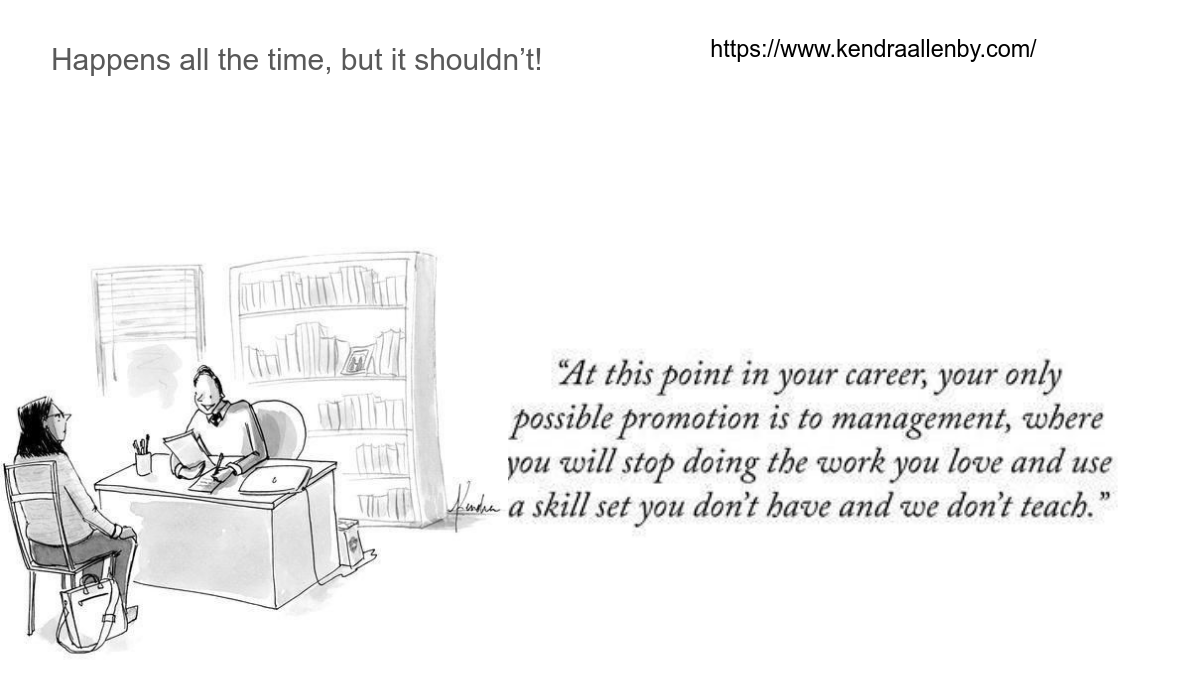NLNOG Presentation trilogy on technical jobs and careers
Over the past eight years I’ve held a trilogy (in four parts) of presentations over at NLNOG covering the working life and career of technical people. This is around two hours of video and slides (with notes), but I’ve heard from people who binge-watched all of it in one go. The presentations have been online for ages, but you had to know where to look for them. On this page I bring them all together, with some context.
All presentations were held at events hosted by the most wonderful NLNOG foundation. And this also would be my first tip if you want to improve your technical career: visit events where peers from the industry meet, and exchange experiences.
Please do note that these talks mostly reflect a Dutch, western European perspective. I’ve since heard from people around the world that they still learned useful things from the presentations, but do know that things are (very) different depending on where you are/work. Specifically, here in Europe we strongly undervalue technical talent. I wrote a lot about that elsewhere.

The polarization between technical people and management
The first talk is about the paradox that our management are “all idiots” while getting paid much better than we are, and living better lives too. What gives?
It turns out that on the one hand we are right, and a lot of our management has no idea what we (or they) are doing. However, things aren’t that simple. For example, we are not communicating our problems well to management and we don’t invest enough time in figuring out what they are trying to tell us.
We live worlds apart. As a case in point, we technical people see meetings as interruptions of our work, whereas management sees such meetings as the actual work. This leads to great misunderstandings.
 If this rings a bell, this presentation is for you
If this rings a bell, this presentation is for you
In this talk, I hope to help form a useful mindset how to deal with management, and come to a more constructive view of the world. There are many anecdotes in there that you might recognize from your work, with suggestions how to deal with these.
I hate watching videos too, but there is ten times more content in the video than in the slides. Give it a chance.
Career improvement
The second presentation details how we as technical people tend to get stuck in not too great jobs for far too long, eventually with bad career/life consequences. This talk is about career improvement, and has tips for changing jobs wisely, or perhaps improving your current job.
It is very important to realize that a terrible job can actually ruin your life and your health. Good jobs really do exist. Meanwhile, an extremely comfortable job that you get stuck too long at might ruin your finances or keep you from doing the reasonable things you want to do. Or you might end up in a place where you are very unattractive for any employer except your current one.
 We need to talk about money
We need to talk about money
Especially for technical people who truly care about technology, it is important to also do maintenance on your own work situation.
Your career will not take care of itself, and there are many ways in which you could move to a better job, both in terms of spiritual reward and paying you what you need to have the life you want. And interestingly, it does not have to be the case that the better paying job is worse for you than the badly paying one.
 Where are you on this graph?
Where are you on this graph?
Should you even have a job? Business for Geeks
Thirdly, the world around us is changing, and it may be that what you want to do is no longer in demand as a “regular job”. You may have to become a contractor or launch your own company.
This is a big change, but you really might not have a choice. You can also be forced into making bad choices, like changing your normal job for a badly paid contractor equivalent that gives you no rights or benefits at all (“ZZP” in Dutch). This could still work if you get paid really well, by the way.

Launching a company goes a lot better if you understand how companies look at employees, contractors and suppliers. If you understand that well you can position yourself to be attractive to do business with. However, also know that customers don’t generally like doing business with unproven companies.
This presentation goes over various business related realities, and could well be useful in deciding if you should launch your own company. It might also help you figure out if you should become a contractor and if so, which kind.
Life Long Learning: Dealing With New Things
Part four of the trilogy!

Slide from part 4 of the trilogy
Our career does not take care of itself. New technologies arrive at a high clip, and some of them are useful. But we can’t chase every new shiny thing. Conversely, we also can’t decide that we can “rock it with Awk” for our entire career.
In this presentation I talk about how to deal with new things & to make the best of them. And also how doing so well, or not well, can impact your working life.
